DRC: A Year of Survival
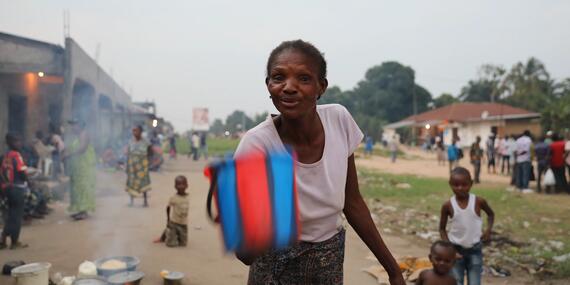
It’s been a year since armed violence erupted in DRC’s once-peaceful Mai-Ndombe region. Fuelled by conflict over land, customary laws and taxes, the violence spread to neighbouring Kwango and Kwilu Provinces, and to the outskirts of DRC’s capital, Kinshasa.
Many villages are now deserted; according to local authorities, more than 161,000 people have fled their villages since June 2022 in search of safety.
One year on, people still hope to return to their villages, but return is not imminent for those living in precarious conditions in collective displacement centres and with host families.
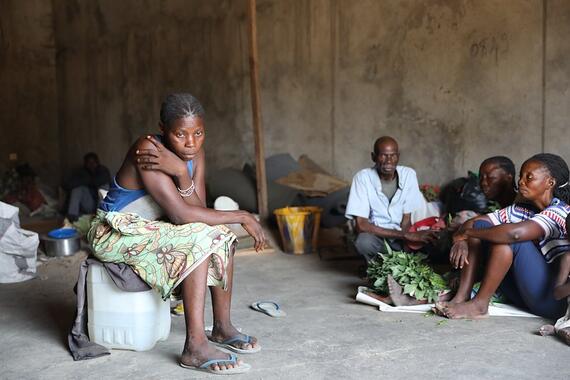
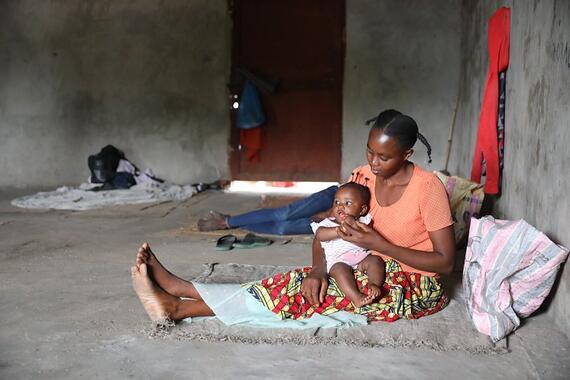
In the city of Bandundu, in Kwilu Province, hundreds of displaced families found refuge in a local market’s old warehouses that are now used as dormitories.
Belesi, 41, cradles her 7-month-old daughter as she struggles to light a fire to cook.
"She was born here," she says, and then described her flight from Bokala village, when it was attacked last August. Eight months pregnant, she could take only one plate with her before fleeing, leaving everything else behind.
"I could barely walk, my feet were swollen," she recalls.
After four days of walking, she arrived in Bandundu and gave birth there the following month.
Belesi’s husband named their daughter Embuscade (“ambush” in French), because he saw him as a miraculous child who had survived the attacks and overcome difficult situations.
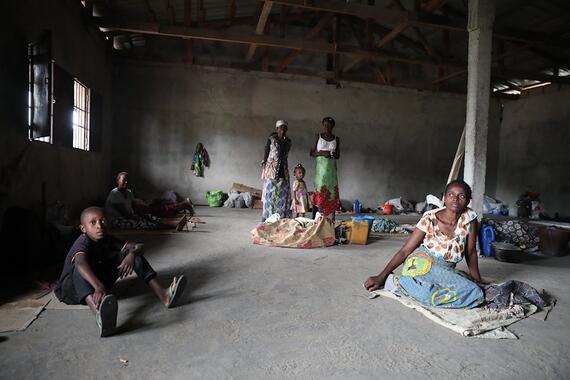
Today, Belesi and her family share a single room with a dozen other displaced families, all of them waiting for peace so that they can return home.
The few humanitarian organizations on the ground are doing their best to provide humanitarian assistance to affected people. In Kwango, Kwilu and Mai-Ndombe Provinces they are providing vital support, including food and health-care services.
"Without the support of humanitarians, many more children would have died here," says Belesi.
More than 7,000 displaced people are enduring extremely harsh living conditions in Bandundu and facing immense challenges in their pursuit of a dignified life. At least 40 people have died there, including 15 children, due to poor living conditions.
Many women and girls have endured the unthinkable trauma of sexual violence while fleeing their homes or when arriving in the area. They are receiving much-needed medical and psychological support from national and international humanitarian organizations.
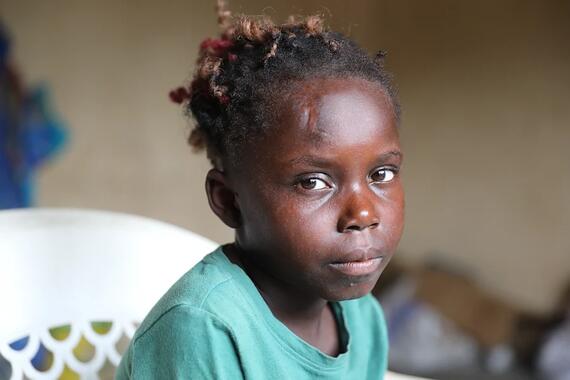
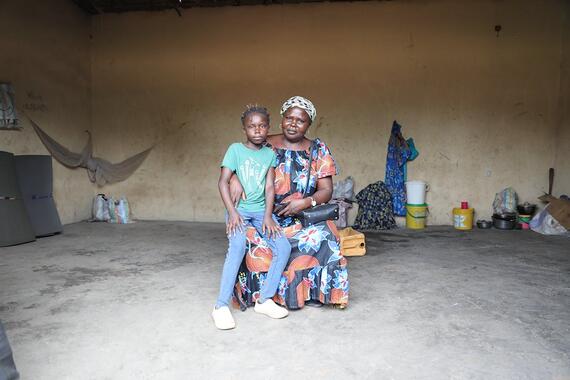
The scars of violence are still visible on the forehead of 8-year-old Malela,* who endured unimaginable pain and loss. In September, armed men attacked her village, killing her parents in front of her. Malela managed to escape with her 2-year-old sister, but they were soon discovered by an attacker, who stabbed them and left them for dead. Miraculously, they both survived.
Aid workers were alerted and came to collect the children from the village. Malela was transferred to a hospital in Kinshasa, 470 km away. After two months of treatment, she returned to Bandundu completely healed but orphaned and psychologically scarred for life.
That's where Mesana, 53, stepped in. She agreed to become Malela's new mother, to take care of her.
"Without the support of humanitarian actors, we would have lost this child," says Mesana, her voice filled with gratitude. "With my age, she should call me grandmother, but I asked her to call me mother. I am now her new mother."
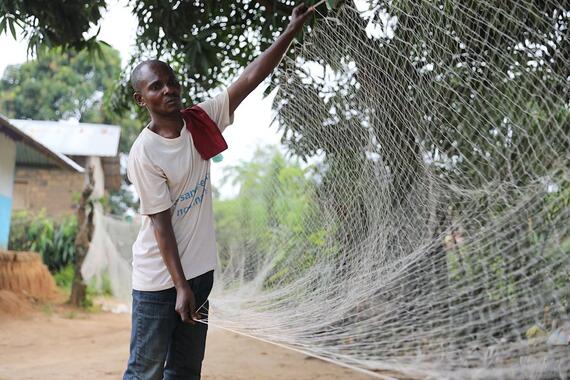
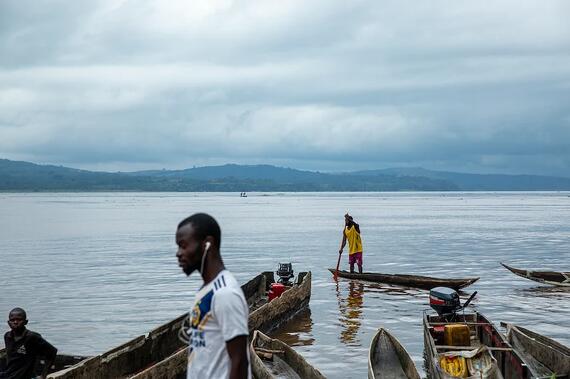
Aid organizations are now increasingly providing aid in the form of cash to affected families. This gives people the freedom to decide what’s best for them.
One of those people is Opeya, a village chief who lost everything in an instant when his house was reduced to ashes during the attacks in August. He fled to Bandundu with his seven children.
Caritas, a non-governmental organization, is providing cash assistance through the DRC Humanitarian Fund — an in-country funding mechanism that is now a lifeline for Opeya and his family.
"With the money I received, I bought nets that I plan to rent out to fishermen," he explains. "This assistance gives us hope. For now, I will settle here."
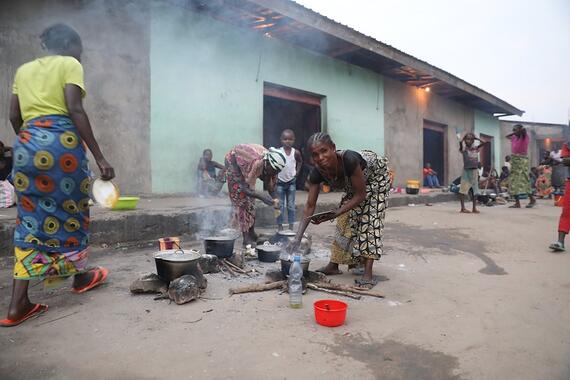
Mourning until home
Bwapapa, a displaced mother of five, lives with her family in a displacement centre in Bandundu. Her village was attacked last August, and her eye was injured by a branch as she fled. She now has intense migraines and progressive vision loss. She received financial assistance for housing, which she had to use to feed her children instead. But in March, one of her children died due to poor health.
Bwapapa is still in mourning. In accordance with her custom and culture, she must guard her deceased son’s clothes. Her mourning will end only when she buries his clothes in their home village. She plans to return there to fulfil this tradition once peace is restored.
"I don't know yet when my mourning will end," she said.
Aid organizations are working to provide humanitarian assistance to people affected by the violence, but the only lasting solution is to restore peace and security in the region.If that happens, displaced women, men and children can do what they really want: go home and live in peace.
People in DRC are suffering from the impact of one of the most complex humanitarian crises. Help us to give them the assistance they need.
Footnotes Text and photos: Wassy Kambale
